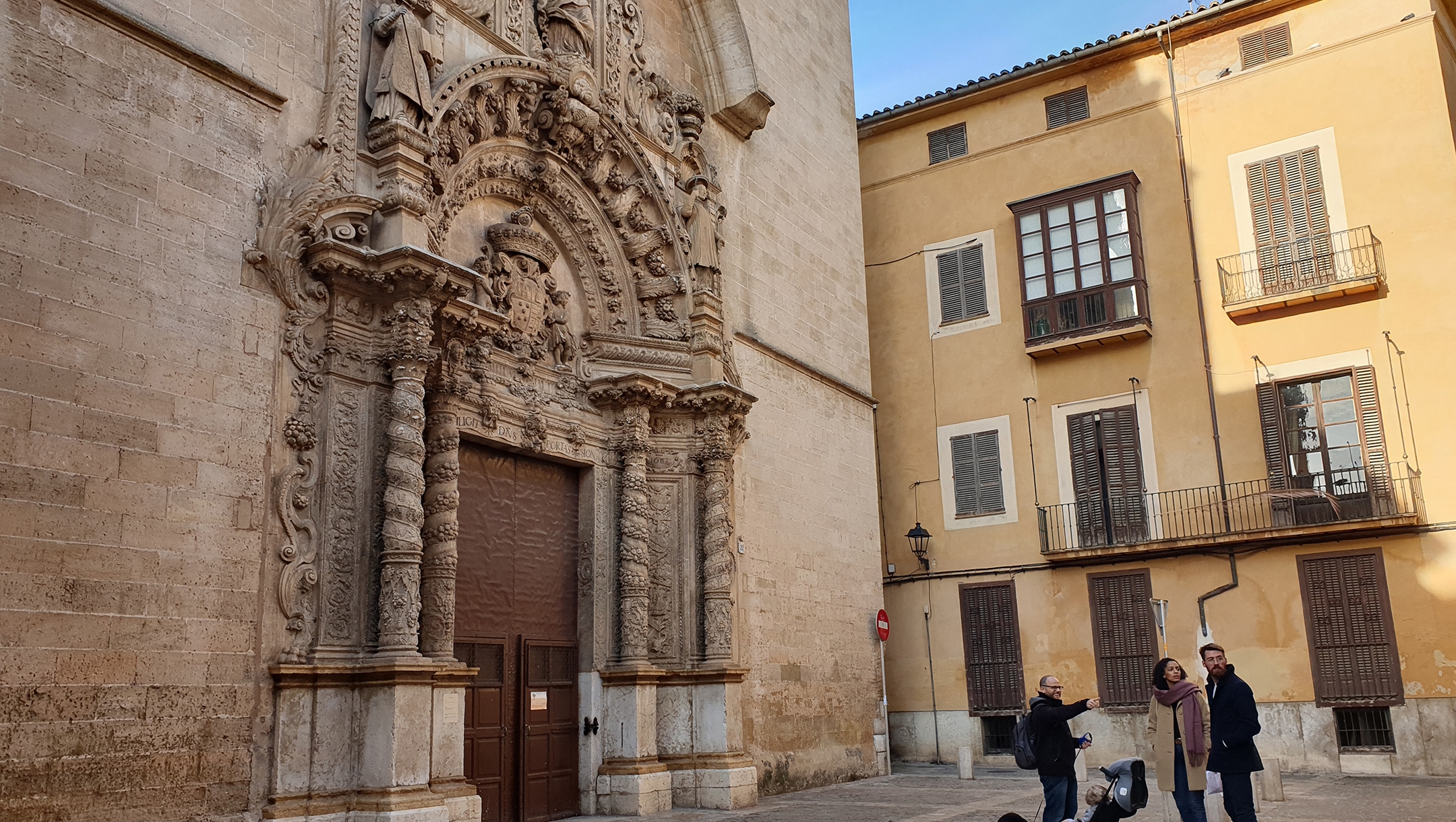Spain’s Balearic Islands officially recognize centuries of injustice against crypto-Jews on Majorca
Today, most chuetas on Majorca talk openly and proudly about their Jewish heritage, marking a significant change after a history of humiliation, fear and secrecy that lasted hundreds of years

Dani Rotstein, pointing, explains to German tourists about a church that used to be a synagogue in Palma de Mallorca, Spain, Feb. 11, 2019. (Cnaan Liphshiz)
MADRID (JTA) — In a landmark acknowledgment, the parliament of Spain’s Balearic Islands issued an official recognition of the “marginalization and discrimination” endured by the islands’ chuetas, or local Crypto-Jews from Majorca.
In a statement, the Federation of Jewish Communities in Spain group welcomed the news in mid-September and asked for chueta history to be taught in local schools.
Today, most chuetas on Majorca talk openly and proudly about their Jewish heritage, marking a significant change after a history of humiliation, fear and secrecy that lasted hundreds of years.
Chuetas trace their Jewish heritage back to ancestors persecuted and killed during the 16th and 17th centuries. The name likely comes from the word “xueu” for Jew in Mallorquín, a dialect of Catalan spoken in Majorca. Some linguists think the term also comes from “xulla” (pig fat), as conversos in medieval Spain were frequently obliged to prove that they had renounced their faith by publicly eating pork, which was prohibited under Jewish law.
Despite the fact that most Spanish Jews had converted to Catholicism decades before the formal expulsion of Jews from Spain in 1492, chuetas continued to face distrustful neighbors and were often victims of violence for centuries after. They were barred from intermarrying with other Majorcan families, leading to a close-knit community that secretly maintained their religious Crypto-Jewish traditions — such as praying or celebrating syncretic religious holidays outside Monti Sion, a Catholic church built on top of the former main synagogue in Palma de Majorca’s Jewish Quarter.
Their history received increased attention and has been discussed more openly in Spain since the death of Francisco Franco in 1975. Franco’s pro-Catholic regime had actively perpetuated anti-chueta sentiment, but the community has since seen a period of revival and acceptance.
The Majorcan government issued an apology in May 2011 for a 1691 event known as the “burning of the Jews,” carried out by the Spanish Inquisition, during which nearly 40 Jews were killed in front of an audience of about 30,000 people.
Further reparations came in September of that year when an Israeli rabbinic from the Bnei Brak Rabbinical Court ruled that chuetas could return to Judaism or immigrate to Israel without undergoing formal conversion, contingent upon proof of their Jewish ancestry. Since chuetas only married between themselves, only 15 families’ surnames survived. Miró, the family name of the celebrated abstract artist Joan Miró, was one of them. Others included Pico, Aguiló, Fuster, Martí, Picó, Pomar and Segura.
More recently, the chueta community has revived their tradition of publicly celebrating major Jewish holidays — events not seen in over five centuries on the island. In 2019, they began celebrating Purim again, then in 2021, they constructed a public sukkah. In 2022, they organized a menorah lighting ceremony for Hanukkah.
The community’s size is estimated at 800 to 1,000 members.
This article originally appeared on JTA.org.















